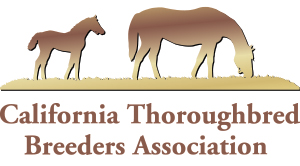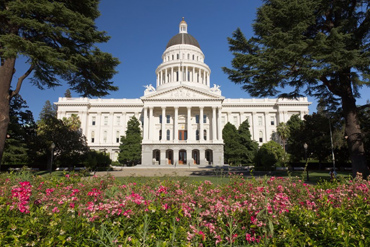By DRF
SACRAMENTO, Calif. (May 18, 2018) — Legalizing sports betting in California faces a difficult deadline to make the November ballot and could be years from implementation, according to state racing executives and legislative staff.
The U.S. Supreme Court on Monday struck down a federal law that prevented individual states from authorizing sports betting. New Jersey, which led the fight to allow sports betting, is putting regulations in place and is expected to begin betting in the near future. Delaware officials said Thursday that they hope to begin sports betting in coming weeks.
California is just beginning the process required for state and regulatory approval and may not vote on the measure until 2020, according to Adam Capper, legislative director for Assemblyman Adam Gray.
In 2017, Gray introduced a constitutional amendment allowing sports betting in California. The measure, which has yet to go to assembly committee, requires two-thirds approval by the state Assembly and Senate, plus approval by Gov. Jerry Brown, before it can go on a ballot.
The deadline for the legislature to include constitutional amendments for the Nov. 6 election is June 28. The sports betting measure would need to move rapidly in the next five weeks to meet that deadline, which Capper described in an email as “a tall order.”
Capper said a more likely scenario is legislative approval in 2019 and inclusion on a ballot in 2020, the year of the next presidential election. By then, California will have a new governor, since Brown is in the final year of his last term. The November election in California this year is highlighted by a gubernatorial race.
If sports betting is approved by voters, the lengthy process of adopting rules and regulations will start.
“That will be when the tug of war really begins,” said Rick Baedeker, executive director of the California Horse Racing Board.
Entities such as racetracks, account-wagering providers, card clubs, Native American casinos, European bookmakers, and sports fantasy websites are among the groups expected to seek licenses to conduct sports betting.
Greg Avioli, president and chief executive officer of Thoroughbred Owners of California, said his organization is hoping to restrict the number of groups allowed to accept sports bets to racetracks, offtrack satellites, card clubs, and Native American tribes in an effort to draw customers to existing betting locations.
“That could provide significant reason to come to our facilities,” he said.
Avioli, formerly president of the Breeders’ Cup, said Native American representatives have said they have limited support for account wagering or internet-based companies joining the sports betting market in California.
“There is no secret on this,” Avioli said of the Native American casinos. “The rationale is they have massive investments in brick-and-mortar facilities and are considering the impact of internet betting.
“I think the ultimate decision is going to be what legislation and what form can get passed.”
The Stronach Group, parent company of California racetracks Golden Gate Fields and Santa Anita, is of a similar opinion, according to track executive Scott Daruty. In an email, Daruty described sports betting as a “perfect complement to the current wagering opportunities offered to our customers.
“The Stronach Group is supportive of legislation in California that would allow existing gaming facilities within the state to offer sports wagering to their customers,” he wrote.
Racing board chairman Chuck Winner said he expects many groups, particularly fantasy sports websites, to seek a share of the market.
“There are so many players involved in how this should go down,” he said.
Baedeker said there is a likelihood that another regulatory agency could be formed in the state to oversee sports betting other than the racing board. He cautioned that the existing constitutional amendment does not have significant detail about regulatory policies, but that the legislature could offer guidance and a timeline for implementation.
“We’re the only body that regulates wagering on sports,” Baedeker said. “We have more experience than anyone else in the state. I think it’s probably likely that a new entity would be formed.”
The Supreme Court decision will be the subject of a closed-door meeting Wednesday involving representatives of racetracks, horsemen’s groups, and attorneys “to discuss what is in the best interest of racing,” according to Winner.
“It’s going to be interesting to hear,” Winner said. “A lot of people have different views.”
Winner said a public discussion on sports betting in California will be held at a racing board meeting later this spring or summer.


